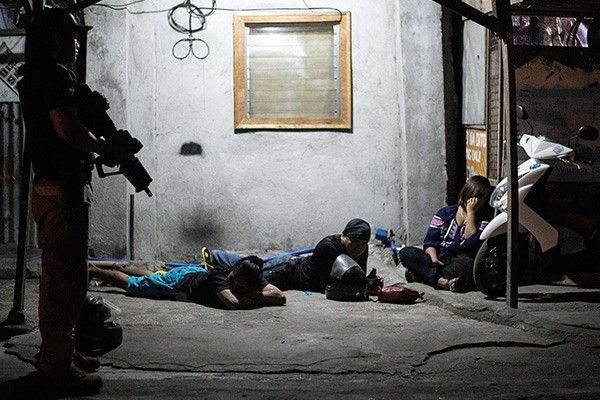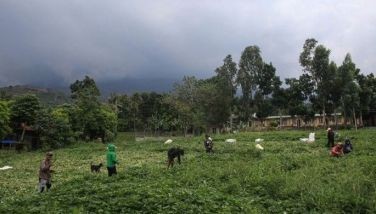Duterte reluctance to share info on 'drug war' deaths a new roadblock, CHR says

MANILA, Philippines — The Duterte administration's decision to restrict access to "drug war" cases involving deaths over national security concerns is a setback in seeking transparency over alleged exytajudicial killings in the anti-drug campaign, the Commission on Human Rights said.
The Philippine National Police initially said that it would forward cases handles by its Internal Affairs Service to the Department of Justice, which has been reviewing deaths in "drug war" cases. But President Rodrigo Duterte on Monday said that the government cannot disclose "confidential" information on the drug war and the anti-insurgency campaign.
In a statement, the commission said information sharing between the national police and the justice department "would have been a start in demonstrating a functional justice system" but said the president's comments and the police decision to send the DOJ fewer cases is a "new roadblock."
It added that: "At this point, we note that it is still uncertain if the case files of the around 7,000 cases in question, as well as other government records pertaining to rights violations, will be shared to the CHR for its own independent probe."
The Palace has repeatedly said that the country's justice system is functioning and police officers are held accountable for abuses and rights violations.
Police leadership has stated that only 53 records of cases handled by the IAS will be handed to the DOJ. There have been at least 7,000 drug-related deaths acknowledged by police while human rights groups have esitimates of up to 30,000 deaths related to the "war on drugs."
Drilon questions 'national security implications' claim
In a statement sent to reporters, Senate Minority Leader Franklin Drilon contested the president's claim, pointing to a precedent set by the Supreme Court.
The senator brought up the case of Almora et al. and Dano et al. v. the PNP in 2018, which said that:
Contrary to the claim of the Solicitor General, the requested information and documents do not obviously involve state secrets affecting national security. The information and documents relate to routine police operations involving violations of laws against the sale or use of illegal drugs. There is no showing that the country's territorial integrity, national sovereignty, independence, or foreign relations will be compromised or prejudiced by the release of these information and documents to this Court or even to the public.
The undeniable fact that thousands of ordinary citizens have been killed, and continue to be killed, during police drug operations certainly is a matter of grave public concern.
"There is no doubt that the OSG's generic and unsubstantiated refusal to submit information prepared in the ordinary course of business as well as documents that are officially issued is unacceptable to the members of this Court," the decision also says.
"It would be the height of absurdity for this Court, with all its powers, to uphold such refusal. If this Court cannot obtain the regularly-prepared information from the OSG as well as from the rest of the respondents, by what other means can ordinary citizens get information about their relatives who were killed during anti-drug operations of the police?"
Drilon said the PNP must follow the rule of law, adding that during his stint at the justice department, he had never seen police records that have national security implications.
The former justice secretary said that, in accordance with the Supreme Court decision, drug war records “do not involve rebellion, invasion, terrorism, espionage, infringement of our sovereignty or sovereign rights by foreign powers, or any military, diplomatic or state secret involving national security.”
“To claim that it involves national security is unfounded. By any stretch of imagination, I could not think how would a single poorest of the poor Filipino, who was killed in an anti-narcotics operation, have planned to overthrow the government?” Drilon said.
“That is, plain and simple, a police blotter. This is a public record and the people have a right to know the truth,” he said partially in Filipino. — with a report from Bella Perez-Rubio
- Latest
- Trending



































